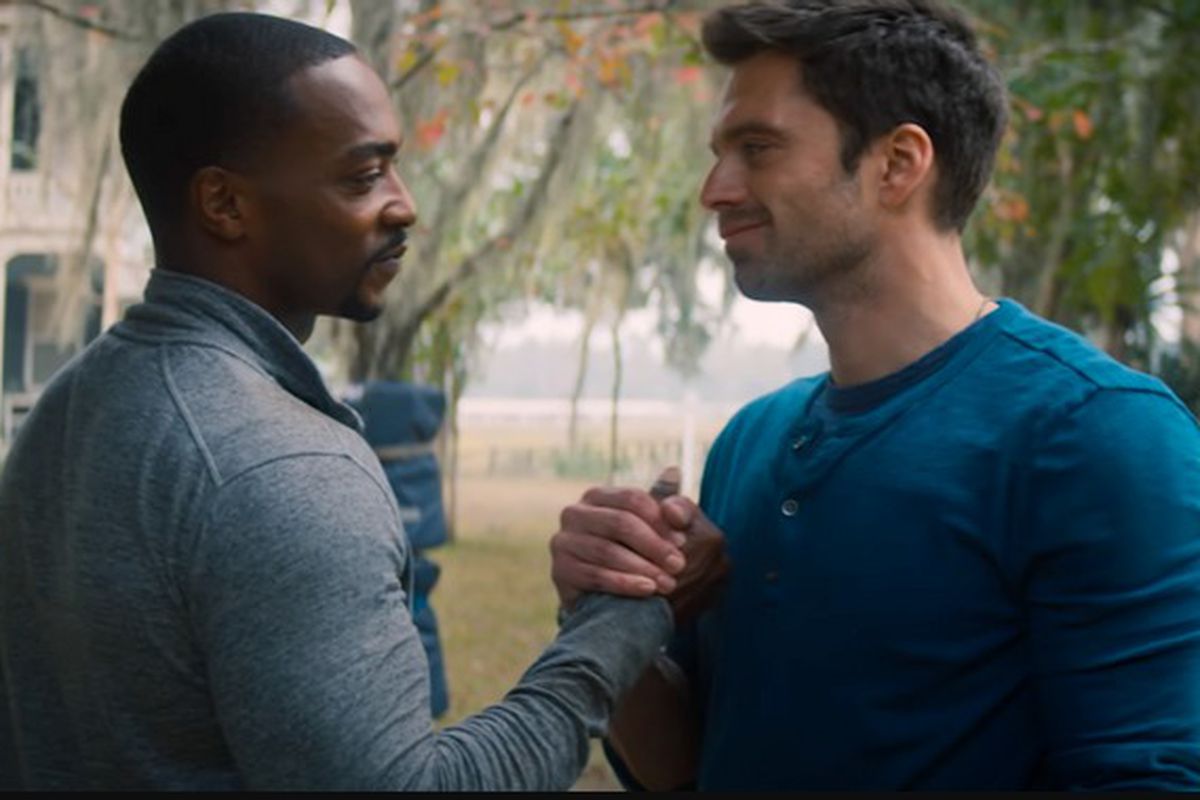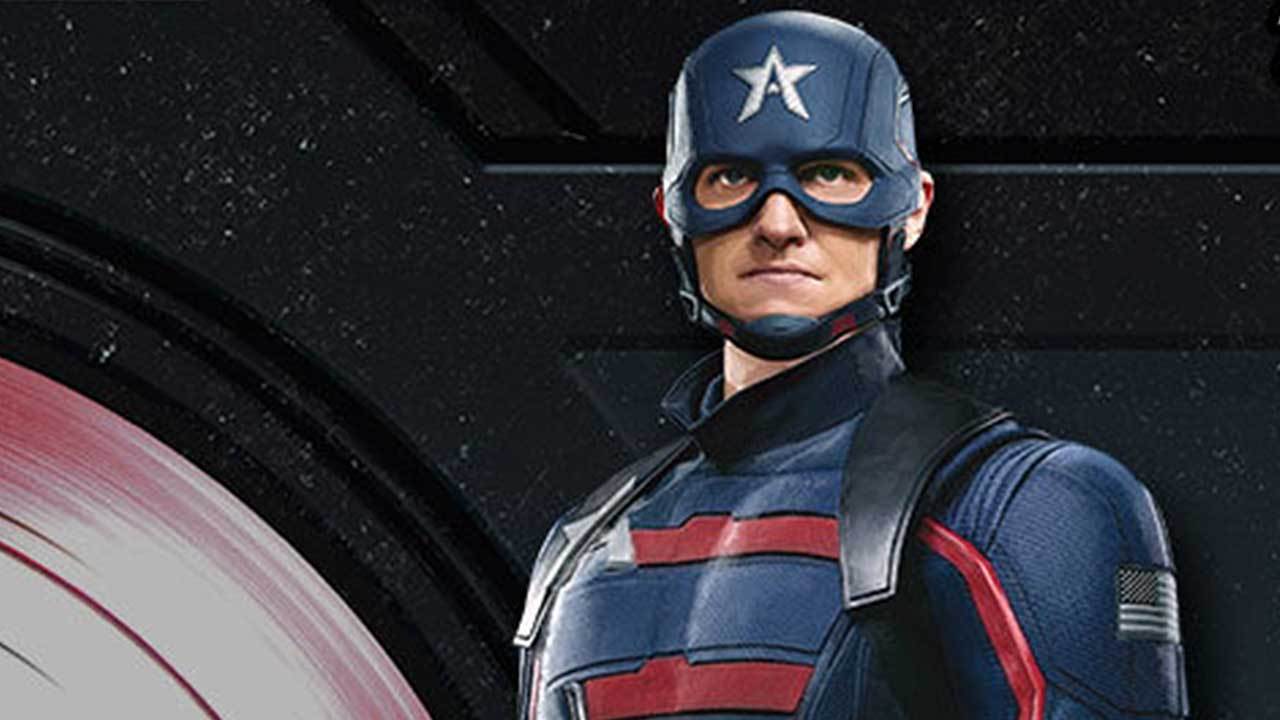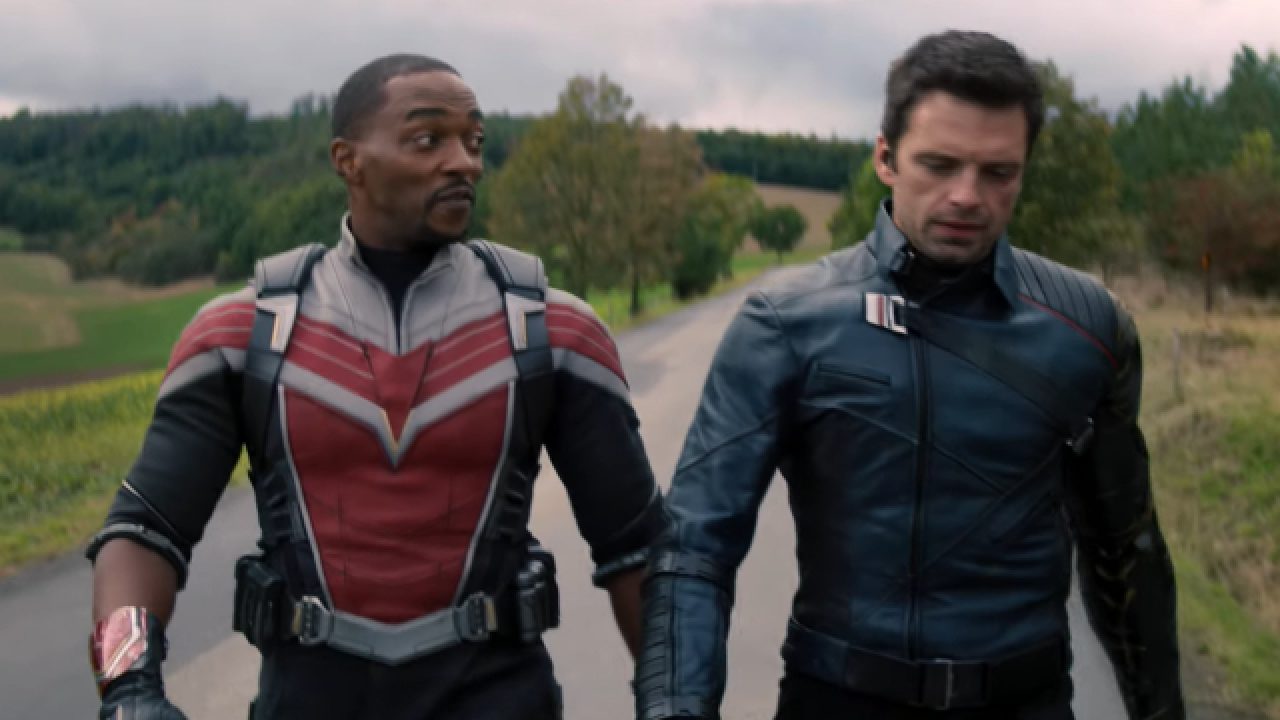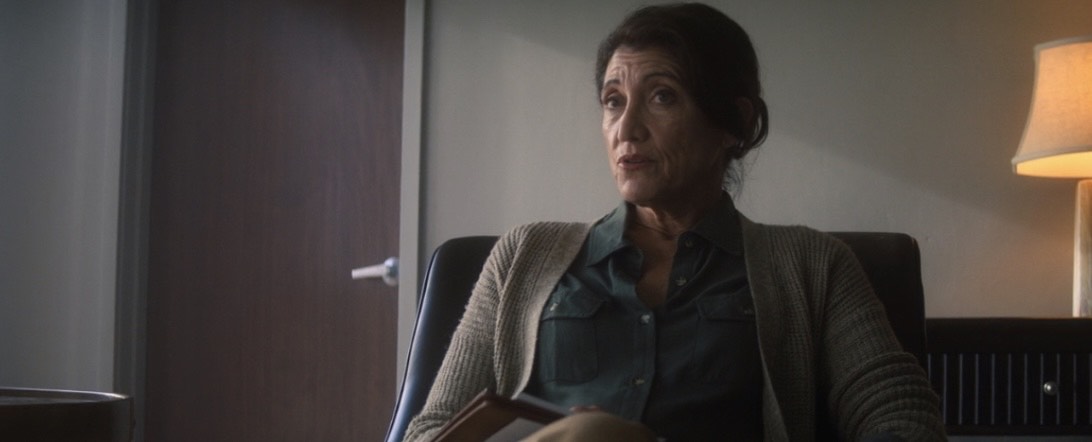‘The Falcon and the Winter Soldier’: Why TV is ideal for post-blip Marvel storytelling
Therapy and financial issues are given space to develop in ‘WandaVision’ and ‘The Falcon and the Winter Soldier.’

The latest updates, reviews and unmissable series to watch and more!
You are now subscribed
Your newsletter sign-up was successful
Want to add more newsletters?

ONCE A WEEK
What to Watch
Get all the latest TV news and movie reviews, streaming recommendations and exclusive interviews sent directly to your inbox each week in a newsletter put together by our experts just for you.

ONCE A WEEK
What to Watch Soapbox
Sign up to our new soap newsletter to get all the latest news, spoilers and gossip from the biggest US soaps sent straight to your inbox… so you never miss a moment of the drama!
This post contains spoilers for The Falcon and the Winter Soldier.
Check out our last review here.
The Marvel slate has been disrupted by the pandemic, but other than a very delayed Black Widow (come July it will be in theaters and on Disney+ Premier Access) the order remains intact. Natasha Romanoff’s (Scarlett Johansson) origin story has been years in the making (long before COVID-19) and is set in the aftermath of Captain America: Civil War. For obvious reasons, this doesn’t take place post-Endgame, but there is plenty of unfinished business with this character requiring a long-awaited solo outing that marks the first movie in Phase 4 of the MCU. Untangling the impact Thanos had on the world is going to take more time than a single movie can spare, and television is the ideal medium to get into the mental and physical curveballs caused by half the global population returning after a five-year absence.
So far, both Disney+ series have addressed the myriad scenarios throwing up roadblocks that even those with powers cannot circumvent. In WandaVision, Wanda's grief is the axis the series spins on and the first episode of The Falcon and the Winter Soldier explores financial instability six months after Endgame. Of course, they are not the first characters shown grappling with this huge adjustment period. Events in 2019’s Spider-Man: Far From Home is set eight months after the big return, however, Kevin Feige remarked at a fan event this movie is the final Phase 3 chapter. Slightly awkward timeline aside, the emphasis on the unsettled environment is a central theme as the heroes experience problems that cannot be solved with brute force or a quip.
The so-called villainous organization at the heart of The Falcon and the Winter Soldier is motivated by the post-blip population explosion, and their desire to break down borders (and provide vaccines to those displaced) is admirable. The Flag Smashers are making some good points, whereas the US government is trying to bring order using a moniker that belonged to another. Steve Rogers defied orders to do what he thought was right, whereas new guy John Walker (Wyatt Russell) is a puppet of the system he represents. Those are the broad brushstrokes of this new agent who is trying to get on side with Sam (Anthony Mackie) and Bucky (Sebastian Stan), but while the pair of Steve Rogers (Chris Evans) BFFs have a combative relationship with each other, neither of them are ready to embrace his supposed replacement. Thankfully, Sam and Bucky’s free-agent status means they have an excuse to go off-book and avoid the cheesy team-up photo op.
MORE: How to watch every Marvel movie in order
Also: Watch Disney Plus on Apple TV

Being a freelancer has its advantages but it lacks the actual benefits of being an employee. Sam’s trip to the bank in the first episode underscores the latter when a small business loan is denied after a selfie is acquired. How the Avengers are paid is far from conventional and despite helping out on missions, Sam is not on the government payroll. There is no fund for heroes and instead, Sam remarks, “There is a tremendous amount of goodwill and because of that, people are inclined to help.” It sounds a lot like Sam has been told he will get compensated with “exposure” and anyone who has worked in a creative industry will know unpaid work is unpaid work — no matter how many perks or clout it comes with. A credit score is not swayed by glitz, glam, and an unstable working environment. Money is a big part of Amazon Primer’s The Boys, which highlights shifty conglomerate interference within a superhero power structure and how social media is a major weapon in their stacked arsenal. It is unlikely that any of the Disney+ MCU shows will stray too far down this road (because it’s Disney) but this exploration of Sam’s small business loan rejection speaks volumes.
Economic insecurity is only briefly covered in Spider-Man — and much more so in the Sam Raimi movies — and it is the Netflix Marvel shows that go into the minutia of how to pay for things in a more overt manner. Characters like Jessica Jones (Krysten Ritter), Matt Murdock (Charlie Cox), and Luke Cage (Mike Colter) all have jobs — whether a lawyer, PI, or bar owner — and while the source of income benefits from their special skill set, they do not have the same ambiguous method of making money as Sam’s “goodwill” answer. TV is more adept at dealing with granular detail because it has more time to build the story and, in this case, go into specifics regarding a post-Tony Stark (Robert Downey Jr.) financed world.
The latest updates, reviews and unmissable series to watch and more!

Finding out more about where Sam comes from and why saving this business is so important adds overdue depth beyond being Steve’s wingman, while juxtaposing his rich family life against Bucky’s loneliness. The latter informs why Bucky has stepped out of the shadows to confront Sam about giving the shield away. Bucky isn’t one for peeling back the layers and it takes a therapy session to draw out exactly why he has taken this so personally. The answer is tied not only to Steve (of course!) but to his feeling of self-worth as he grapples with all the horrific things he did as the Winter Soldier. “And if you just gave it away then maybe he was wrong about you. And if he was wrong about you then he was wrong about me," he reveals during the “soul magazine exercise.” The only thing keeping Bucky from slipping into a guilt-decorated abyss is the knowledge that Steve hadn’t misplaced his belief in him and so far, Sam is not making a good case for this hypothesis.
Sam’s naivety is twofold: trusting the US government wouldn’t “borrow” Steve’s shield from the Smithsonian at the first opportunity and believing his celebrity status would be enough to save the family business. In the bank, it takes a few moments before the manager can place him and a similar incident occurs in Baltimore in the second episode. Dressed in casual attire, Sam is viewed by the police as a potential threat. This scene highlights how a Black Avenger is a target when his hero status isn’t on display. The atmosphere changes in an instant from harassment to deferential when the other cop realizes who Sam is. They don’t ask for a selfie, but the shift in tone can’t paper over the systematic racism on display.

An arrest warrant for Bucky is tied to his missed therapy session, which is how Dr. Raynor (Amy Aquino) ends up in a holding cell with the bickering pair. Her desire to crack the Bucky surface continues and she knows exactly how to push his buttons. So far, he has been resistant to her techniques but the Sam addition leads to this patient breakthrough — despite the unorthodox environment. It is going to take more than a few sessions to confront the deep well of trauma inflicted by and upon Bucky in his century of living. Whereas Wanda built a sitcom suburb to hide from her grief, Bucky has been out in the world even if he is resistant to Dr. Raynor’s counseling.
Therapy is a TV staple from The Sopranos to Big Little Lies and Aquino has previously played chain-smoking counselor, Dr. Toni Pavone, on Felicity. College students and former assassins don’t have too much in common but it is notable that The Falcon and the Winter Soldier is leaning into this method to push the story forward. More sessions with Dr. Raynor are what Bucky and Sam need and television makes this exploration a possibility. Obviously, there are plenty of movies featuring some form of therapy but in a two (okay nearer three) hour movie, this material ends up on the cutting room floor when the future of the world is at stake. Sometimes to save humanity, you have to save yourself first.
Emma Fraser spends most of her time writing about TV, fashion, and costume design; Dana Scully is the reason she loves a pantsuit. Words can also be found at Vulture, Elle, Primetimer, Collider, Little White Lies, Observer, and Girls on Tops. Emma has a Master’s in Film and Television, started a (defunct) blog that mainly focused on Mad Men in 2010, and has been getting paid to write about TV since 2015. It goes back way further as she got her big start making observations in her diary about My So-Called Life’s Angela Chase (and her style) at 14.


